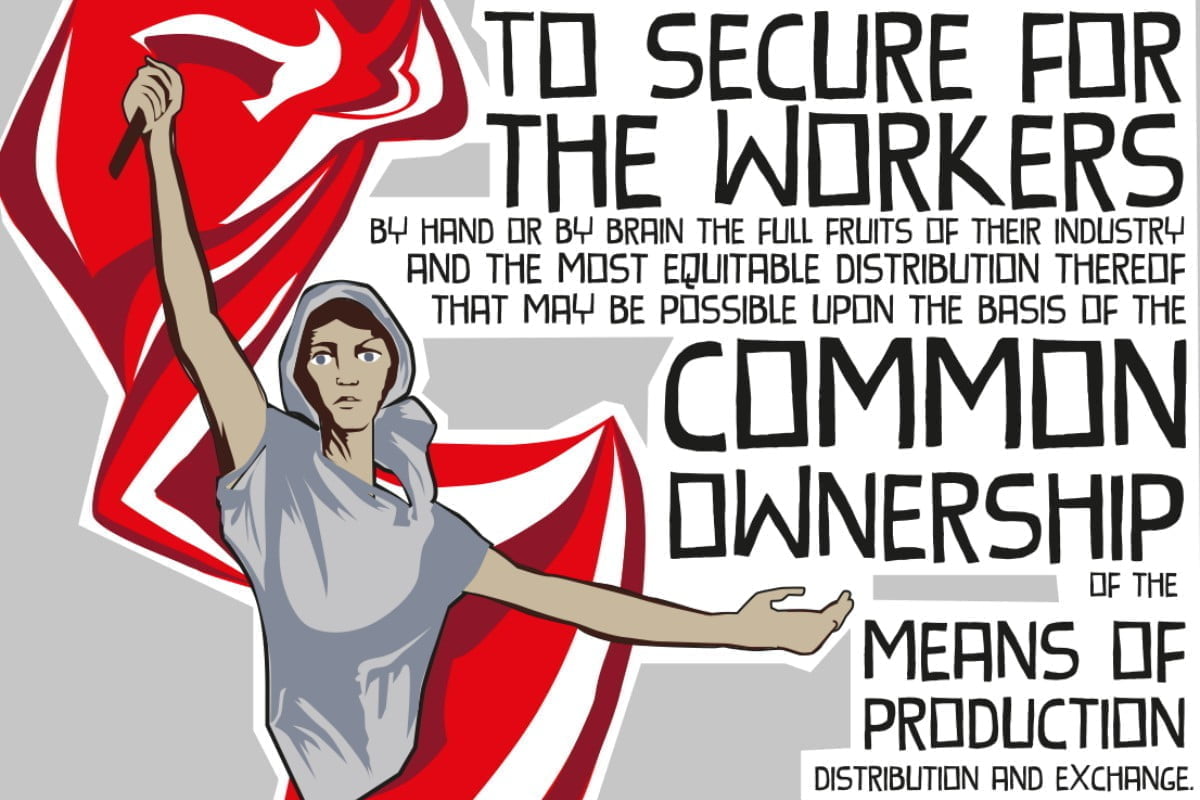This week marks the centenary anniversary of Clause 4 – Labour’s original commitment to socialism. As Rob Sewell explains, the time is ripe for Corbyn and Labour to once again pledge themselves to fight for the socialist transformation of society.
The Labour4Clause4 campaign is very timely. And it is creating waves.
The campaign has found enthusiastic support amongst sections of the rank and file of the Labour Party and trade unions. For grassroots activists, with a Labour government in sight promising fundamental change, there has never been a better time to bring back the commitment to bold socialist policies.
The response from the right wing of the Party and trade unions, however, has been less than enthusiastic. For them, it is like the Devil’s reaction to holy water. This is to be expected, as they defend capitalism and the ‘market economy’.
There is also another layer who are rather cool about the idea. “The time is not right”, they say, even though nationalisation is a hot topic at the present time. Or, “we can’t give ammunition to the right wing” – as if socialism is something to be ashamed of.
We say that now is not the time to cower in the corner or hide under a blanket. Now is the time to be bold about an idea whose time has come.
Labour’s socialist roots
In the past, the Left was much bolder than today. They argued explicitly for the abolition of capitalism and the socialist transformation of society. Even the Labour leaders were more radical.
Keir Hardie, the founder of the Labour Party, submitted a resolution to the House of Commons in 1901, which stated that:
“Considering the increasing burden which the private ownership of land and capital is imposing, [this House] calls for legislation designed to remedy the same by inaugurating a Socialist Commonwealth founded upon the common ownership of land and capital, production for use and not for profit, and equality of opportunity for every citizen.”
Clement Attlee, another Labour leader, wrote in 1937:
“It is the task of the Labour Party to win over to its side all these elements which are still uncertain of their position…[This] does not in my view involve watering down Labour’s Socialist creed in order to attract new adherents who cannot accept the full Socialist faith. On the contrary I believe that it is only a clear and bold policy that will attract their support. It is not the preaching of a feeble kind of Liberalism that is required, but a frank statement of the full Socialist faith in terms which will be understood.”
“Socialism is not the invention of an individual. It is essentially the outcome of economic and social conditions. The evils that Capitalism brings differ in intensity in different countries, but, the root cause of the trouble once discerned, the remedy is seen to be the same by thoughtful men and women. The cause is the private ownership of the means of life; the remedy is public ownership.”
“The essentials of Socialism have been well stated by Bertrand Russell:
‘Socialism means the common ownership of land and capital together with a democratic form of government. It involves production for use not profit, and distribution of the product either equally to all, or, at any rate, with only such inequalities as are definitely in the public interest. It involves the abolition of all unearned wealth and of all private control over the means of livelihood of the workers. To be fully realised it must be international.’” (Labour in Perspective, 1937)
For needs, not profits
The programme of the Socialist League, the left within the Labour Party in the 1930s, was even more explicit. They called for Labour to adopt Emergency Powers:
“Immediate introduction of an Emergency Powers Act to forestall any sabotage by financial interests; the abolition of the House of Lords; the immediate nationalisation of the banks, land, mines, power, transport, iron and steel, cotton, and control of foreign trade; restricted compensation; acceptance of work or maintenance principle; and full rights for all State employees.”
Today, capitalism is experiencing its deepest crisis since the 1930s. It is therefore time we revived the real socialist aims of Labour Party embodied in Clause 4, to secure “the common ownership of the means of production and exchange”, under democratic workers’ control and management.
The task of a Labour government is not to patch up capitalism. Instead, Labour should introduce a system based on need, not profit. That is what the Labour4Clause4 campaign is all about.






